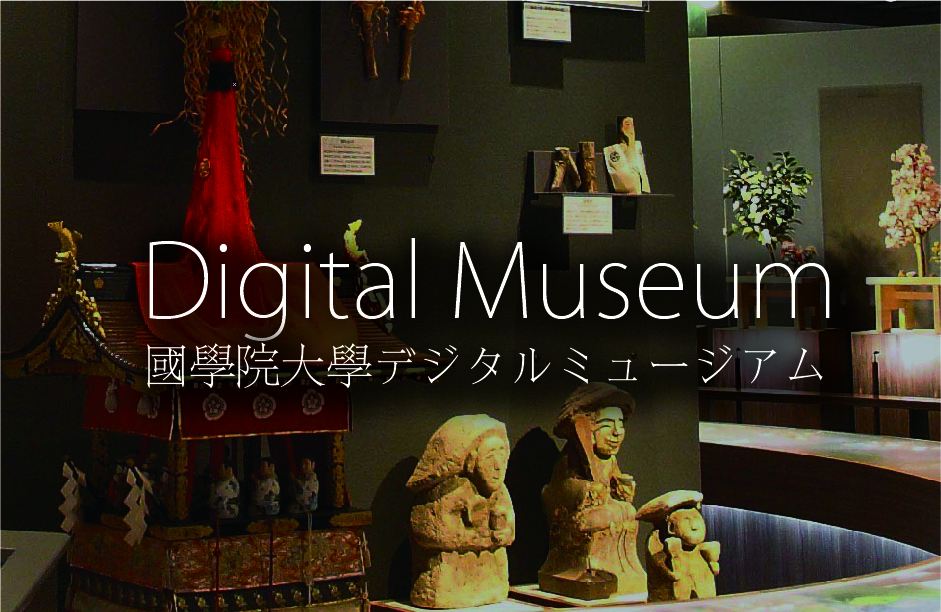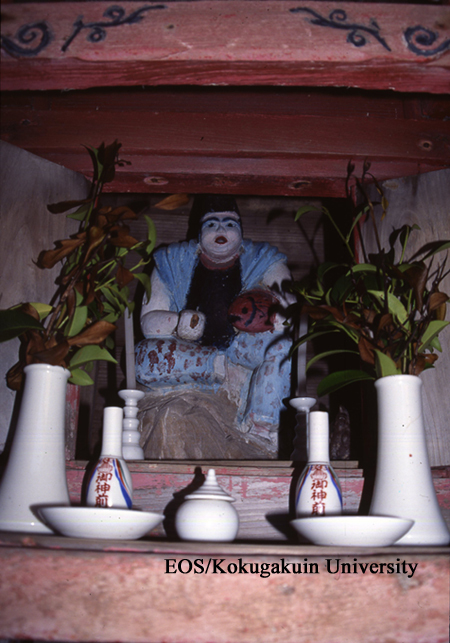- トップ
- Encyclopedia of Shinto
- Ebisu
Encyclopedia of Shinto
| Main Menu: | |
| Links: |
詳細表示 (Complete Article)
| カテゴリー1: | 2. Kami (Deities) |
|---|---|
| カテゴリー2: | Kami in Folk Religion |
| Title | Ebisu |
| Text | Together with Daikoku, one of the most popular and well known of the "seven deities of good fortune" (shichifukujin). The opulent image of this kami holding a fishing pole or a sea bream is known intimately by people throughout Japan. In addition to those shown above, the name Ebisu has been written with numerous characters or their combinations, including 戎 and 恵誹施, and while the etymology has been tied to the words emishi or ebisu meaning "foreigner" or "barbarian," neither the name's attribution nor the kami's characteristics are unambiguous. In coastal villages, Ebisu is frequently worshiped in small shrines (hokora) at coastal promontories, as a deity that brings a bountiful catch, and at the beginning of each year's fishing season boat captains and young men may dive blindfolded into the ocean and bring back rocks which are then enshrined as Ebisu. In the same way, whales, sharks, dolphins, and even human corpses found floating in the ocean may be paid worship as Ebisu. Ebisu also possesses characteristics as a tutelary of commerce, and is the object of a cult of regular devotees among business people, as seen in the Tōka Ebisu festival observed each January 10 at the shrine Nishinomiya in Hyōgo and at Osaka's Imamiya Ebisu Shrine. Shrines to Ebisu as a tutelary of the marketplace were dedicated (kanjō) within the temple Tōdaiji in Nara in 1163 and at Kamakura's Tsurugaoka Hachimangū in 1253, and they gradually drew the devotion of merchants, in conjunction with the expansion of commerce. Ebisu has an additional role as a kami of agriculture; in some areas, for example, Ebisu has undergone fusion with the cults of the rough kami Kōjin and the hearth tutelary kamadogami; combined with characteristics of a kami of the fields (ta no kami) that brings abundant harvest, Ebisu is presented with offerings of early rice transplant seedlings each year. Some mountain villages use the name Ebisu to refer to their kami of the mountain (yama no kami), suggesting that the Ebisu cult has overlapped with the annual travel of the kami of the fields and the kami of the mountains. -Iwai Hiroshi |





